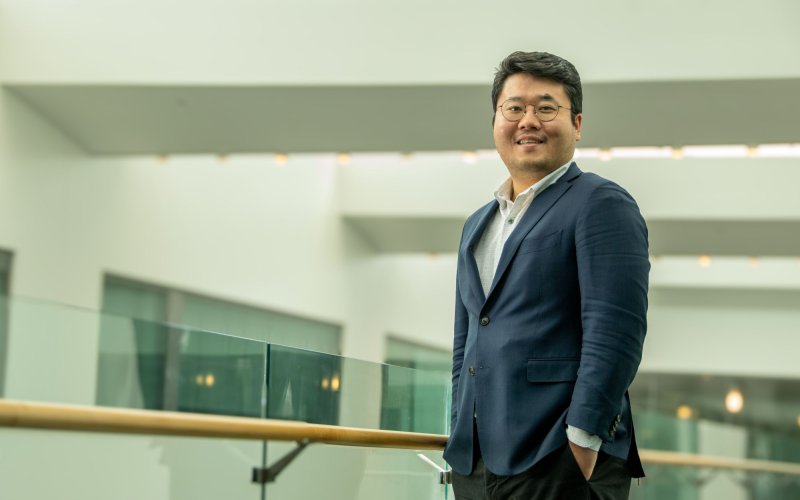Q&A with Sukwoong Choi: Tech Treasure Hunter

ALBANY, N.Y. (April 22, 2024) — When Sukwoong Choi was growing up in South Korea in the 1980s, his country was just beginning its transformation into a global technology leader. Internet access was fast expanding to homes and businesses. Government, industry and academia were collaborating to develop computer chips and other life-altering innovations.
Captivated by what he saw as the vast potential of computers and their applications, Choi enrolled at the preeminent Korea Advanced Institute of Science & Technology. He was soon captivated by the economics of artificial intelligence.
“This education not only deepened my passion for technology, but also expanded my understanding of its role in advancing society,” says Choi, whose doctoral and post-doctoral studies included stops at the Haas School of Business at the University of California at Berkeley and at both MIT’s Sloan School of Management and its Computer Science and Artificial Intelligence Lab (CSAIL).
In September, Choi joined the University at Albany’s Massry School of Business, teaching classes in business analytics, open source intelligence and social network analysis. Here, he discusses his education, interests and how AI is like a magic wand.
How would you explain your discipline: innovation and entrepreneurship driven by disruptive technologies such as AI, quantum computing and algorithms?
Imagine you have a magic wand that can change the way we live, work and have fun. But instead of a wand, we use amazing tools like AI (which acts like an incredibly smart machine that can learn and make its own choices), quantum computing (think of a computer that's unbelievably fast, able to solve problems way quicker than any computer we use today), and algorithms (these are like recipes that tell the computer exactly what to do).
My role is to explore how these fantastic tools can impact people, businesses and the labor market. It’s like being on a treasure hunt, where the treasure is discovering new ways these technologies can help us do things better and faster, or even do things we've never thought possible before.
What’s an application of AI that most of us don’t think of?
One of my research projects demonstrates how radiologists benefit from using AI, enhancing their decision-making accuracy and efficiency. Another study of mine showed that professional Go players have also experienced drastic improvements in decision quality after learning from AI following the AlphaGo event.
AI's potential extends to enhancing highly skilled, white-collar professions. My research indicates that experts need AI to refine their skills, as AI begins to surpass human performance in various fields. For professionals to effectively interpret and leverage AI's recommendations, they must diligently enhance their knowledge and possess a strong ability to absorb and apply new information.
Was there a moment when the proverbial light bulb went off?
A pivotal moment was when Demis Hassabis, the founder of Google DeepMind, visited KAIST during the AlphaGo events. His presentation on AlphaGo's victory over human champions in Go — a game previously believed to be beyond the capabilities of classical computers — was a watershed moment. It illustrated the profound impact AI can have on society. This experience propelled me to explore how AI influences the decision-making and performance of experts.
As a newcomer to the Massry School of Business and part of an exciting new chapter that merges big data and business, what particular contribution do you hope to make?
I aim to share insights from my research on how AI impacts our society with the Massry School of Business community, including students, staff, and faculty. Additionally, I plan to foster collaborative research projects with firms and secure funding for AI-related research endeavors, thereby contributing to the school's innovative edge and helping prepare the community for a future shaped by AI and big data.




